Two days before Christmas, and here we are – nearly 4,000 of you. Whether you're celebrating the holidays or simply enjoying the year-end calm, I wanted to take this moment to pause, reflect, and finally share something I've been meaning to tell you.
But first, to every single one of you who's been part of this: Thank you for reading, for engaging, for challenging me to dig deeper, and for showing me exactly what this community needed to be. Some of you have been here since the early days when I was still figuring out what AI Disruptor should become. Many of you joined over the past couple weeks, maybe after reading about NotebookLM workflows or Claude techniques.
Here's the thing – in all our discussions about AI tools, productivity hacks, and industry analysis, I've never properly introduced myself. I realized this recently. You know my takes on AI, but you don't know my story. And with our community growing faster than ever, this feels like the perfect moment to change that.
I'm not just another AI writer who jumped on the bandwagon when ChatGPT exploded. My journey in this industry started years ago, and honestly, it's a bit different from what you might expect. It's a story about bootstrapping from $12 articles, about seeing AI's potential before it was mainstream, and about learning what really matters in this industry.
But more importantly, it's a story about why I believe AI's true power lies not in the technology itself, but in making it accessible to people like you – the teachers, writers, entrepreneurs, and creators who are quietly transforming their work with these tools.
My real start in AI
Long before AI became a household term, I was grinding out $12 articles about horse racing. Yes, horse racing – not exactly the cutting edge of technology. And when I say $12 per article, I'm not exaggerating. Looking back now, it's a stark reminder of how the content industry often exploits young writers. Many talented people get stuck in that cycle, trading their skills for barely enough to get by.
At the same time, I was deeply interested in AI on a personal level, and everything shifted when Antoine Tardif (Founder/CEO) started Unite AI some 5+ years ago. He was building something different – a decentralized publication focused on AI and robotics. This wasn't just another tech blog jumping on trends. Unite AI was going all-in on AI coverage before it became a household name. Antoine had spotted the same future I saw coming, and finally, there was a chance to be part of it. A platform that believed, just like I did, that AI would reshape everything.
I went from writing about race predictions to analyzing research papers and covering breakthroughs that seemed like science fiction at the time. Unite AI grew from a niche publication to a platform getting millions of views, and I found myself at the intersection of journalism and innovation.
But here's what made my perspective unique: While I was writing about AI developments, I was also working directly with AI startups. I wasn't just reporting on the industry – I was seeing it from the inside. I sat with CEOs trying to innovate while learning and saw firsthand how the gap between AI's potential and public understanding was widening by the day.
This dual perspective showed me something crucial: Most people just needed to know how this technology could help them work smarter, create better, or solve real problems. The disconnect between the technical discussions and practical applications was massive.
That realization would eventually lead to AI Disruptor, but not before I learned some hard lessons about what really matters in this space. The most valuable insights often come from the ground level – from seeing how real people interact with and implement AI in their daily work.
How AI Disruptor found its purpose
Mid-2024.
While I was neck-deep in AI news and startup culture, I kept thinking about people behind left behind because they simply did not know what was possible. Writers stuck in the same $12 article trap I'd escaped. Small business owners watching bigger players leverage AI while they struggled to keep up. Teachers who knew AI could transform their classrooms but didn't know where to start.
The gap wasn't in the technology – it was in the accessibility.
Everyone was writing about what AI could do, but hardly anyone was showing regular people how to actually use it. Sure, there were basic ChatGPT tutorials everywhere, but what about the real unique and useful stuff? The stuff that shows a freelancer how to use AI to compete with established agencies. Or how a teacher can transform their lesson planning and research without needing a computer science degree.
I spent the first half of 2024 lost.
I jumped between platforms trying to figure out what AI Disruptor should be. Another news site? Another tutorial hub? The space felt crowded, yet something was missing.
Then the breakthrough came from you – our community. When I started sharing actual, practical guides – the kind of content I wished I'd had when starting – everything clicked. Not surface-level "here's how to use ChatGPT" tutorials, but actionable and practical guides that could transform how people work.
The response was immediate.
Our community started growing not just in numbers, but in engagement. People weren't just reading – they were implementing, experimenting, succeeding. When we moved to Substack and introduced the paid tier, nearly 100 of you subscribed within weeks. That wasn't just validation – it was a clear signal that we'd found our purpose.
What we're building here isn't just another AI newsletter.
It's a community of people who understand that AI isn't just for tech giants and Silicon Valley startups. It's for everyone who's willing to learn, experiment, and push boundaries.
What this year taught us about AI's real power
If 2024 taught me anything, it's that AI's true potential isn't in the headlines or the hype. It's in the quiet wins happening in home offices, classrooms, and small businesses across the globe. It's in watching someone transform their work process using tools they thought were "too technical" for them just months ago. I’ve been there.
Here we are, approaching 4,000, with a paid community that's growing faster than I ever expected. These aren't just numbers – they're validation of something I deeply believed: that AI tools should be accessible to everyone, not just tech experts.
What really got me excited was seeing how you used my guides.
But here's what really matters: None of these wins came from following basic "how to use ChatGPT" tutorials. They came from understanding the deeper principles of how these tools work, then experimenting and adapting them to your specific needs.
The pattern became clear:
The tools matter less than how you use them
Personal context beats generic solutions every time
The best results come from experimentation, not just following steps
Every success story in our community reinforced something crucial: AI isn't about replacing human creativity – it's about amplifying it. It's about giving you the space to focus on what matters while automating the rest.
Most importantly, we learned that the barrier to entry isn't technical skill – it's knowing where to start and having the confidence to experiment. That's what AI Disruptor became about: not just showing you the tools, but helping you build the confidence to make them your own.
Get ready - 2025 will be wild
If you thought 2024 was intense for AI, buckle up. 2025 is going to be the year everything changes, and I'm not just saying that for effect. We're about to witness something that most people aren't ready for: the rise of truly autonomous AI agents.
This isn't sci-fi or hype – I'm seeing the early signs.
The tools and capabilities that were "experimental" in 2024 are about to become mainstream, and that's exactly why I'm so excited about our community's position.
Think about it: While everyone else will be scrambling to understand these changes, you'll already have the foundation. All those prompts you've mastered? They're the building blocks for agent interaction. Those workflow automations you've built? They're the precursors to autonomous systems.
Here's what's coming in Q1 2025:
Autonomous agents that can actually run parts of your business
AI tools that understand context at a much deeper level
New ways to combine and customize AI capabilities
But here's why I'm really excited: Every advancement makes these tools more accessible, not less. The technical barriers are dropping fast. What used to require coding knowledge will become drag-and-drop. What used to take hours of prompt engineering will happen automatically.
For AI Disruptor, this means I’m doubling down on our mission. I’m expanding our coverage of:
Agent-building tutorials that actually work
Advanced customization techniques anyone can use
Remember how I started this letter talking about those $12 articles? In 2025, no one should have to start that low. The tools we'll have access to will level the playing field in ways we've only dreamed about.
You're not just along for the ride – you're ahead of the curve. While others are still debating whether to trust AI, you'll be building systems that transform how you work.
I’m going to take off until Thursday for the holidays, and when I return, we're diving straight into OpenAI's o3 model.
Will we achieve AGI in 2025? Probably not. But we'll see something arguably more interesting – AI systems that will make today's tools look basic.
To our community: Whether you're a paid subscriber making this deep coverage possible, or a free reader exploring what's possible, thank you. When I doubt myself or question if I'm providing enough value, I read your messages and comments.
I'll see you on Thursday with that o3 breakdown.
Until then, enjoy the holidays if you're celebrating, get some rest, and get ready. 2025 is going to be one hell of a ride.
P.S. New subscribers: Welcome aboard. You picked one hell of a time to join us. There's gold in our past editions – dive in while I'm away.




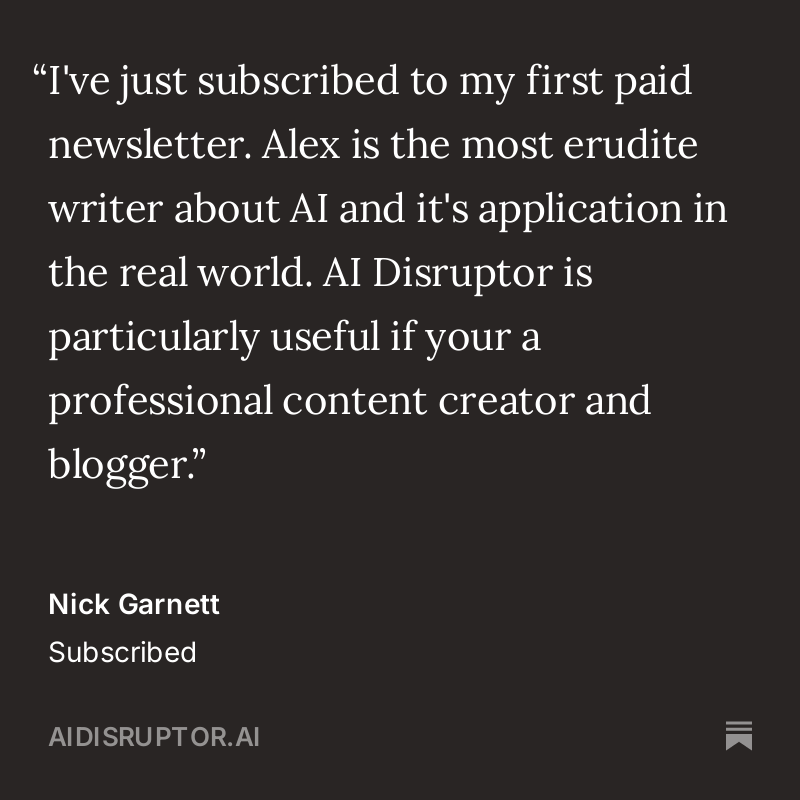
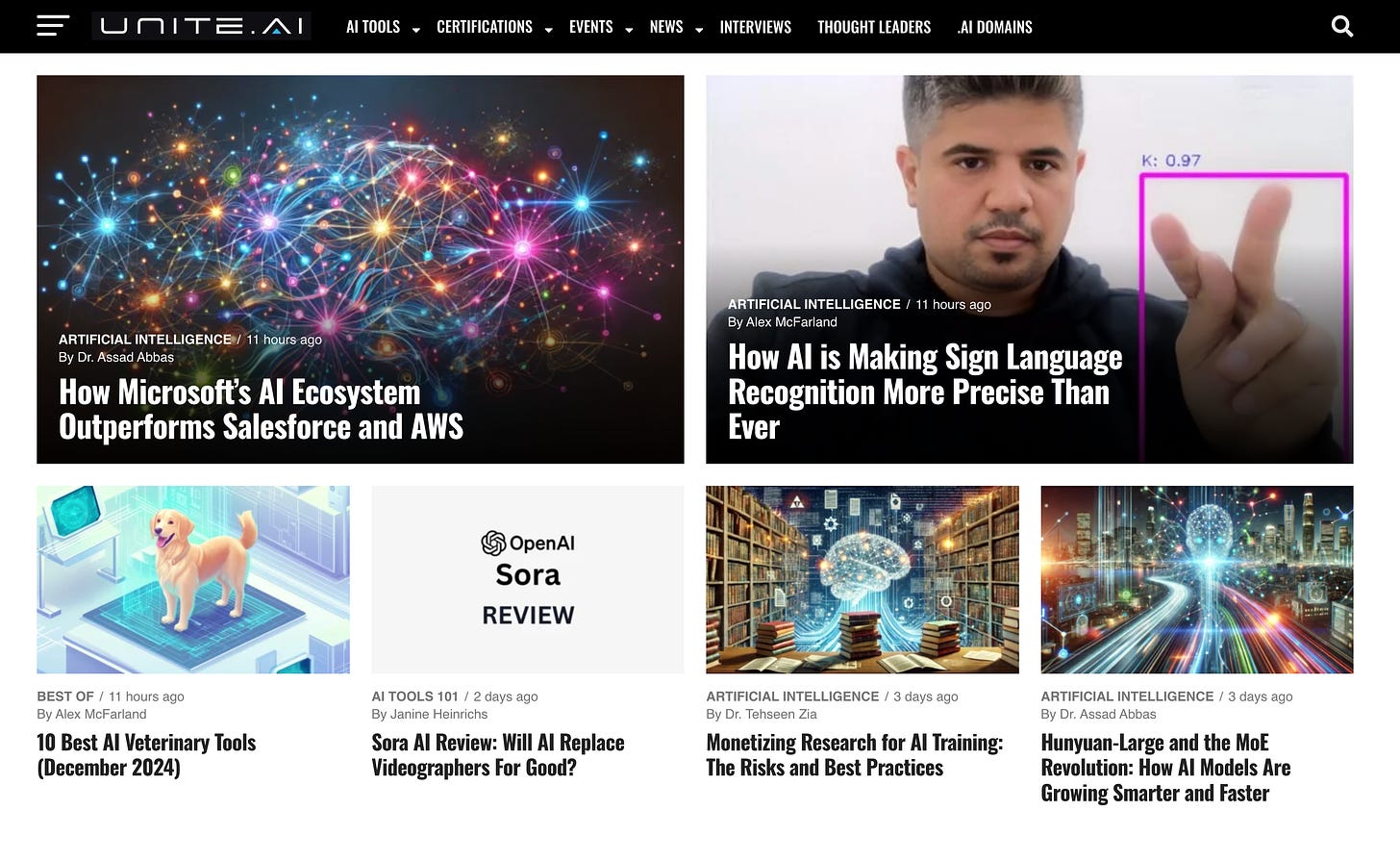
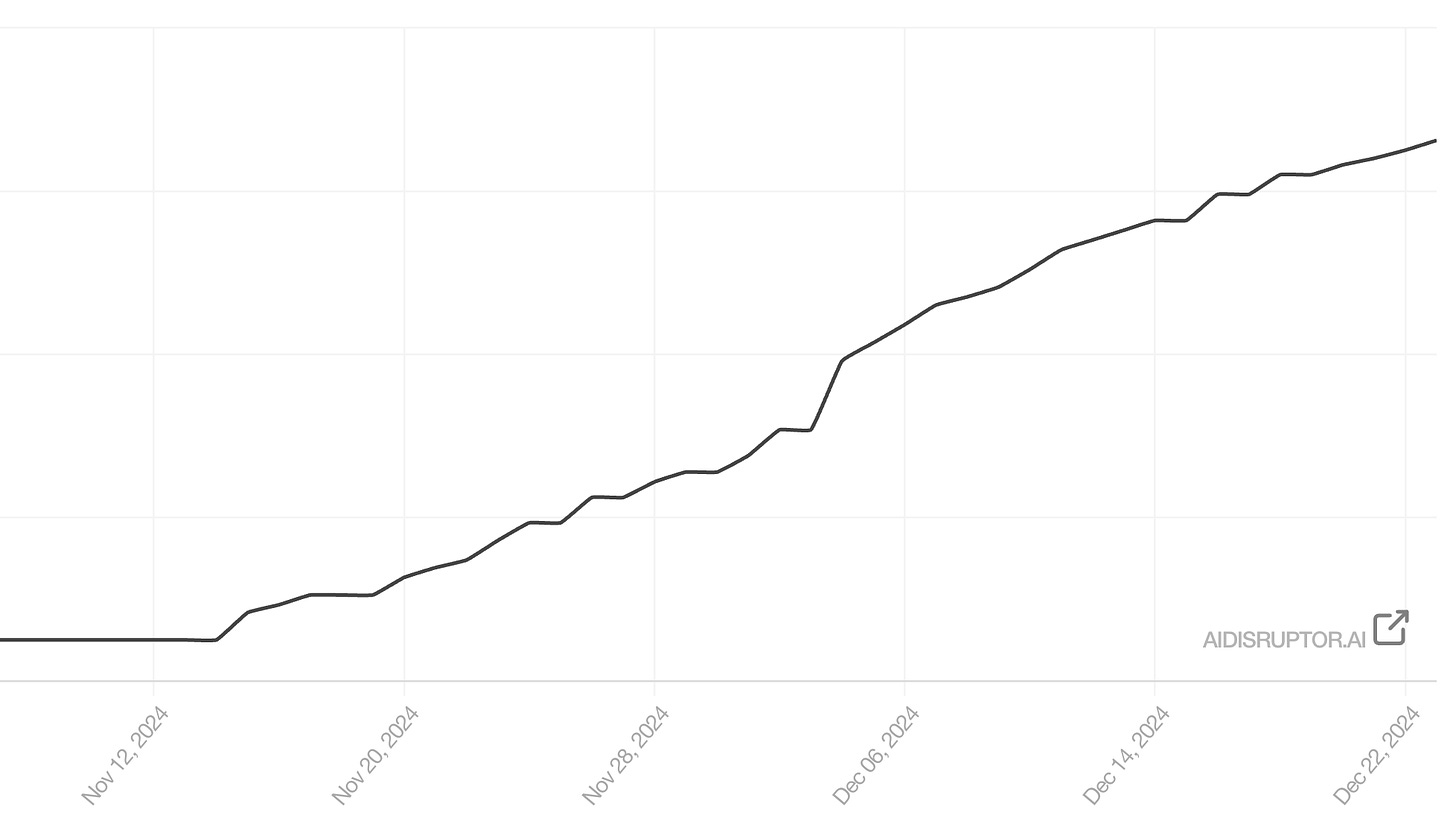
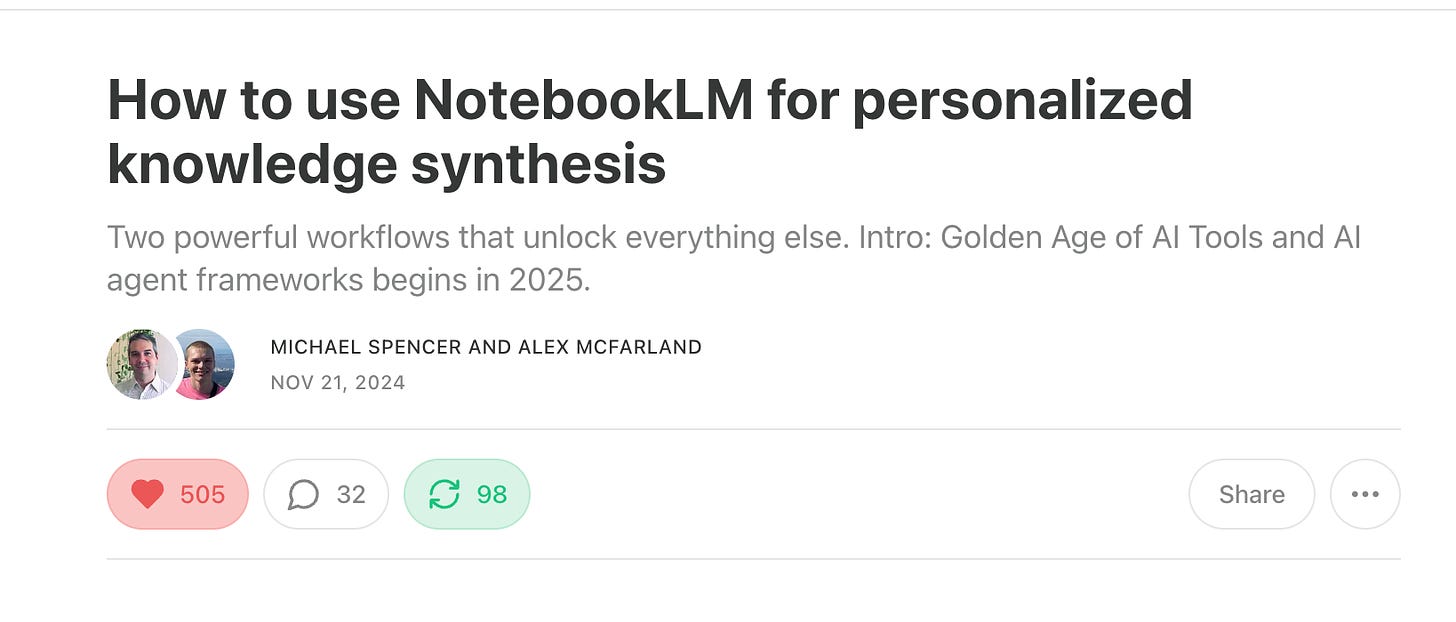

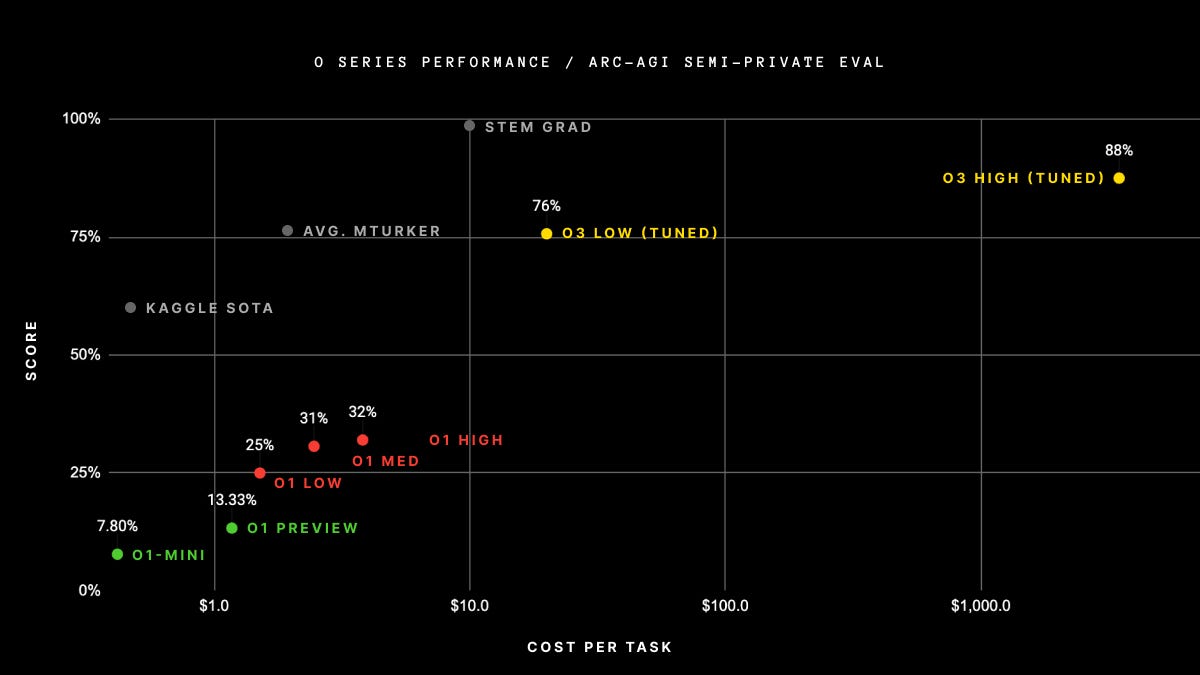
Combining personal experiences, real context and technological expertise is something that made your guides and issues really "juicy" for anyone who wants to understand more about the practical and at the same time technical aspects of AI. Thanks for sharing and congrats on your results!
P.S. If you are open to collab issues, I would be thrilled to work on something intriguing together!
Thank you, Alex. I completely agree with your points. And because we cannot experiment with everything in our companies or personally, your help fills the inevitable gaps. I wish you a lovely and relaxing festive period!